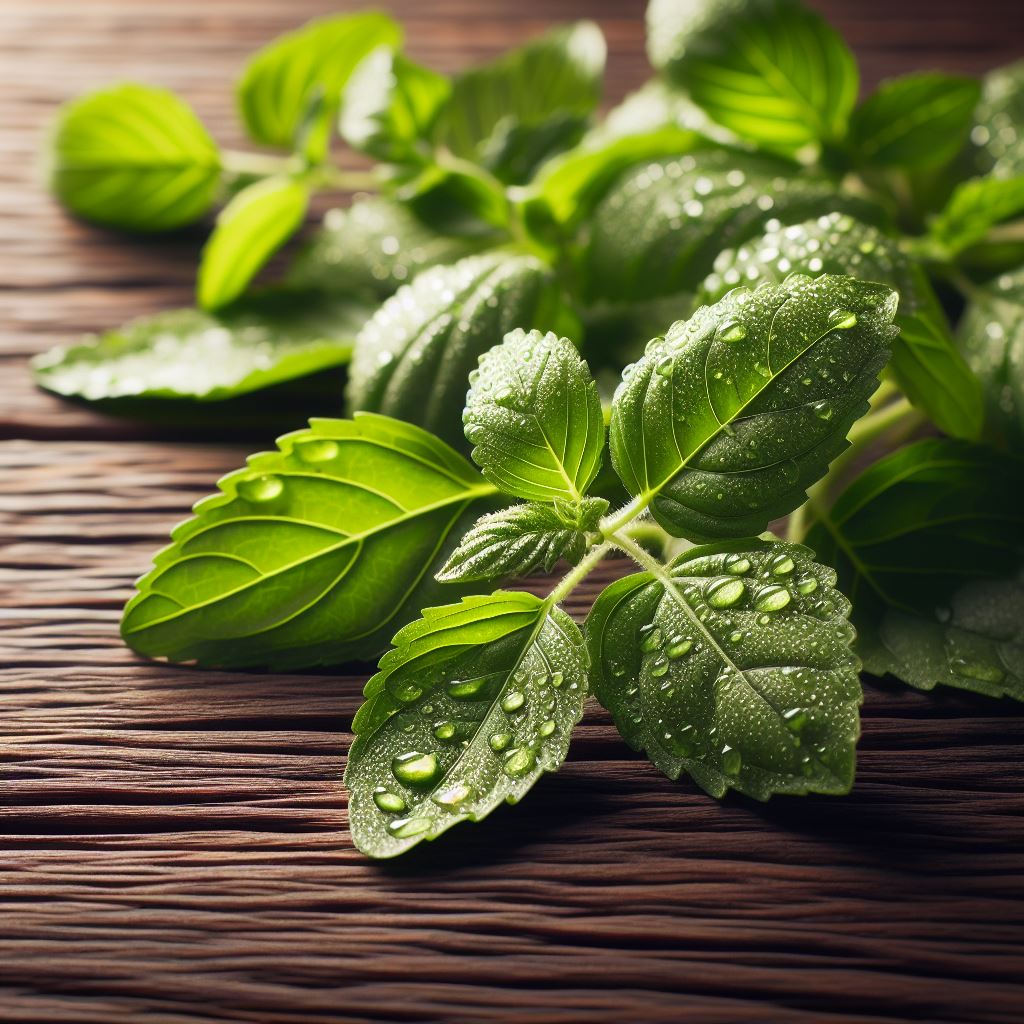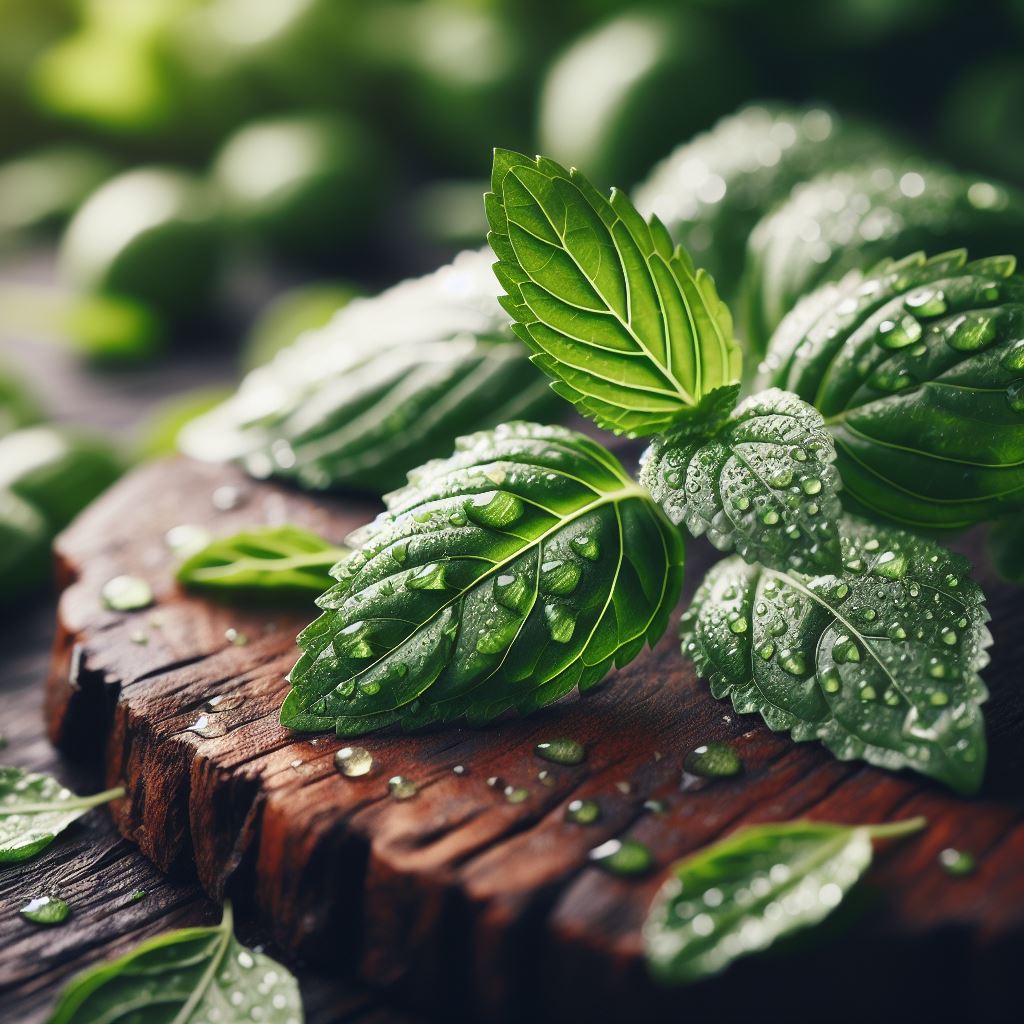

Tulsi, also known as Holy Basil, holds a revered place in traditional medicine systems such as Ayurveda and has been used for centuries to promote health and well-being. Revered for its medicinal properties and spiritual significance, Tulsi is often called the "Queen of Herbs" for its diverse benefits. Let's delve into the fascinating journey of Tulsi, exploring its historical roots, remarkable properties, and modern applications in promoting health and vitality.
-
Use of Tulsi:
Tulsi is cherished for its versatile uses in promoting overall health and well-being. It is consumed in various forms, including fresh leaves, tea, extracts, or as an ingredient in herbal formulations. Tulsi is valued for its ability to boost immunity, support respiratory health, relieve stress, and promote digestion. It is also known for its antimicrobial properties, making it effective against infections.
-
History of Tulsi:
The history of Tulsi dates back thousands of years, deeply rooted in Indian culture and spirituality. Tulsi is revered as a sacred plant in Hindu mythology and is believed to be the earthly manifestation of the goddess Lakshmi. Legend has it that Tulsi emerged from the tears of the Hindu god Vishnu’s wife, Tulsi Devi, who was transformed into the plant after a curse. Since then, Tulsi has been worshipped in Hindu households and temples as a symbol of purity, devotion, and protection.
-
Some Important Facts about Tulsi:
- Immune Boosting: Tulsi is rich in antioxidants and nutrients that help boost the immune system, protecting the body from infections and illnesses.
- Stress Relief: Tulsi is considered an adaptogen, helping the body cope with stress and promoting relaxation. It is known to reduce cortisol levels and improve resilience to stressors.
- Respiratory Support: Tulsi has expectorant and bronchodilator properties, making it effective in relieving cough, congestion, and respiratory conditions such as asthma and bronchitis.
-
Some Research with Dates for Tulsi:
- 2005: A study published in the Journal of Ethno pharmacology explored the anti-stress and antioxidant properties of Tulsi, highlighting its potential in reducing stress levels and improving overall health.
- 2012: Research in the Journal of Ayurveda and Integrative Medicine investigated the immunomodulatory effects of Tulsi, suggesting its role in enhancing immune function and protecting against infections.
- 2018: A systematic review published in the Journal of Herbal Medicine evaluated the pharmacological properties of Tulsi, emphasizing its traditional uses and modern applications in promoting health and well-being.
-
Diseases where Tulsi can be Helpful:
- Cold and Flu: Tulsi helps in relieving symptoms of cold and flu by boosting immunity, reducing inflammation, and clearing respiratory congestion.
- Digestive Issues: Tulsi aids in digestion by stimulating digestive enzymes, relieving indigestion, bloating, and gas. It supports gastrointestinal health and promotes regular bowel movements.
- Stress and Anxiety: Tulsi helps in managing stress and anxiety by reducing cortisol levels, promoting relaxation, and enhancing mental clarity. It acts as an adaptogen, supporting the body’s response to stressors.
-
Quotes on Tulsi:
“In the fragrance of Tulsi lies the essence of purity, devotion, and healing.” – Unknown
“Let Tulsi be thy companion on the journey of wellness, guiding thee towards health and spiritual awakening.” – Anonymous
“Like the sacred plant that graces the courtyard, Tulsi offers its blessings of health and vitality to all who seek its embrace.” – Anonymous
-
In Conclusion:
Tulsi, the Queen of Herbs, continues to captivate and heal generations with its remarkable properties. Its rich history, coupled with modern research, underscores its significance in promoting health, vitality, and spiritual well-being. Let us embrace the wisdom of Tulsi, honouring its legacy as a sacred herb of healing and protection, and unlock its gifts with curiosity and reverence.






